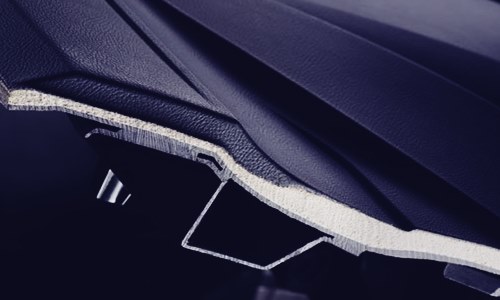
German chemical giant, BASF has reportedly developed an innovative PU foam system range which facilitates the manufacture of slim and light-weight automotive interior components allowing for considerable vehicle weight reduction. As per sources, the developments in this Elastoflex E product range possess the capability to save up to 30% of the foam weight. Based on the geometry of the component it could attain around 120g/L of foam densities without compromising any distinctive characteristics. If the company’s claims are to be believed, this system could be utilized for manufacturing components with a minute physical profile (less than 5mm) and would result in considerably thin & light door elements & instrumental panels, opening avenues to explore new and innovative design options. BASF Automobile Interiors Expert, Performance Materials Division, Marc Martin explained that their new PU system will reduce weight significantly and is designed to integrate control elements or sensors within it. Marc also added that BASF has managed to reduce emission values further while simplifying the incorporation of lasers for airbag weakening. Aligned with this new generation of foam systems, the largest chemical producer in the world has also developed another foam system which is based upon renewable raw materials, cite trusted sources. This foam system dubbed the Elastoflex E 3496/102 lists castor oil to be the renewable raw material which could be used to manufacture complex, thin & light weight components with exceptional adhesion capabilities enabling its adhesion to an extensive range of surfaces. For the uninitiated, for several years the German giant has been supplying state of the art PU foams to manufacturers supporting OEMs in producing foam-backed doors, armrests, and instrument panels for their automobiles. This latest innovation is the outcome of BASF’s ongoing expansion effort to grow its global PU foams portfolio to be used in the automobile sector, experts state.




